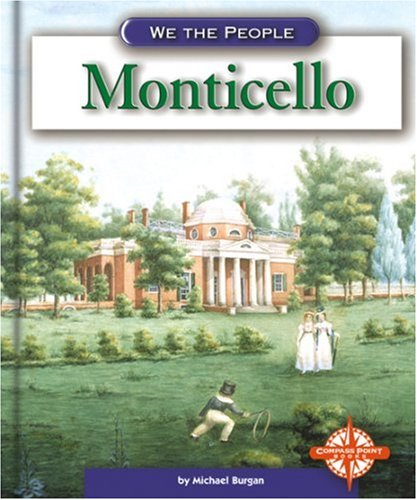-
The Minutemen
Lucia Tarbox Raatma
Library Binding (Compass Point Books, Jan. 1, 2005)Describes how the Minutemen, the soldiers who fought the first battles of the American Revolutionary War, fought against British troops in the Battle of Lexington and in the Battle of Concord. X
X
-
The Battle of Bunker Hill
Mary L. Englar
Library Binding (Compass Point Books, Jan. 1, 2007)For more than 10 years, American colonists had been protesting British tax laws. Their rallying cry became "No taxation without representation!" Protests continued but nothing changed. By 1775, the colonists had reached a breaking point and formed volunteer militias. Untrained and outnumbered, they fought bravely against British soldiers who had been sent to enforce the law. Tensions between Great Britain and the American colonies increased, and on June 17, 1775, the bloody Battle of Bunker Hill marked the beginning of the Revolutionary War. U
U
-
The Bill of Rights
Michael Burgan
Library Binding (Compass Point Books, Sept. 1, 2001)Explains how the Bill of Rights was written and ratified. R
R
-
Mount Vernon
Andrew Santella
Library Binding (Compass Point Books, Sept. 1, 2004)Describes Mount Vernon, the home of George and Martha Washington. Includes information on the farming and businesses run from Mount Vernon, and the slaves that worked there. S
S
-
The Boston Tea Party
Michael Burgan
Paperback (Compass Point Books, Sept. 1, 2000)Recounts the events leading up to the colonists' defiant act against the British known as the Boston Tea Party, which ultimately climaxed in the American Revolution. T
T
-
Soldier and Founder: Alexander Hamilton
Michael Burgan
Library Binding (Compass Point Books, Jan. 1, 2009)Alexander Hamilton rose from life as an orphan to one of America’s Founding Fathers. A military man, Hamilton fought for the freedom of the colonies from Britain, and later became a member of Congress. While serving as the secretary of the treasury, he founded the U.S. Mint, the first national bank, and supported a number of tariffs meant to lend financial stability to the United States. T
T
-
The Boston Massacre
Michael Burgan
Library Binding (Compass Point Books, Jan. 1, 2005)Describes the Boston Massacre, the event when the American colonists believed that they had been treated unfairly for years by Great Britain, leading to a clashing with British troops. T
T
-
Valley Forge
Michael Burgan
Library Binding (Compass Point Books, Jan. 1, 2004)Describes the conditions General George Washington's troops endured at Valley Forge during the Revolutionary War. T
T
-
The Boston Tea Party
Michael Burgan
Library Binding (Compass Point Books, Sept. 1, 2000)Recounts the events leading up to the colonists' defiant act against the British known as the Boston Tea Party, which ultimately climaxed in the American Revolution. T
T
-
Monticello
Michael Burgan
Library Binding (Compass Point Books, Sept. 1, 2003)Relates the history of Thomas Jefferson's home in western Virginia, including what life was like there for himself, his family, their slaves, visitors, and descendants, and how Monticello became a museum. T
T
-
First of First Ladies: Martha Washington
Lucia Tarbox Raatma, Sue Vander Hook
Library Binding (Compass Point Books, Jan. 1, 2009)First of First Ladies is a Capstone Press publication. T
T
-
The Surrender of Cornwallis
Ann Louise Heinrichs
Library Binding (Compass Point Books, Jan. 1, 2007)The Revolutionary War was almost over. The king of England’s mighty troops had fallen to a ragtag army of Americans at the Battle of Yorktown. Under the command of General Charles Cornwallis, the proud British soldiers were forced to give up their arms. On October 19, 1781, Cornwallis surrendered. The last major battle of the war had broken him. Soon the new United States would form its own government. Independence had arrived. U
U